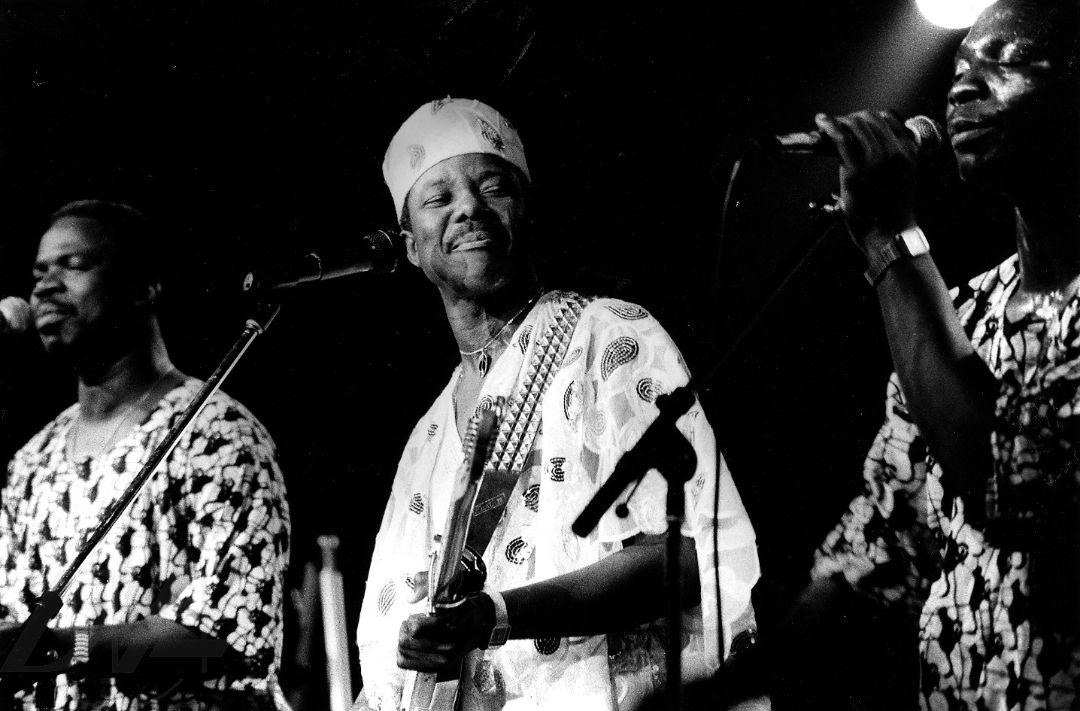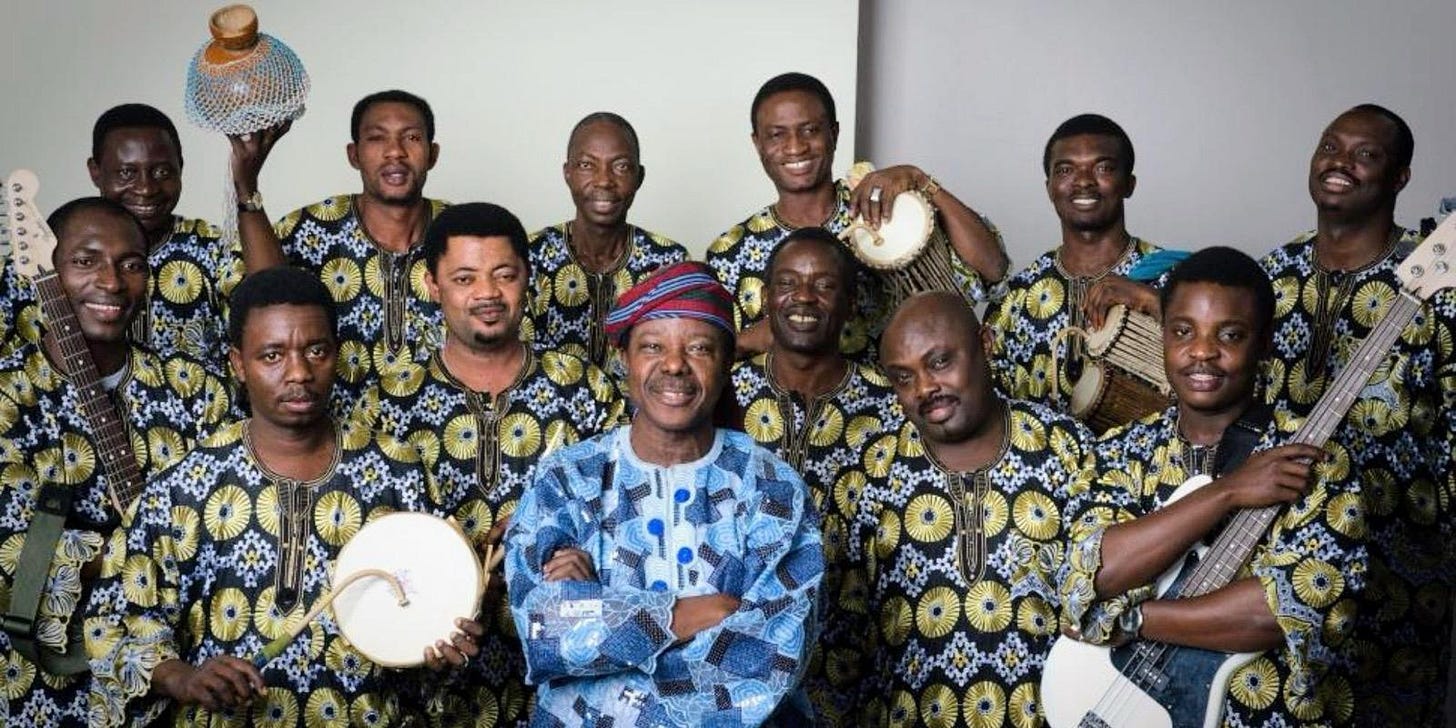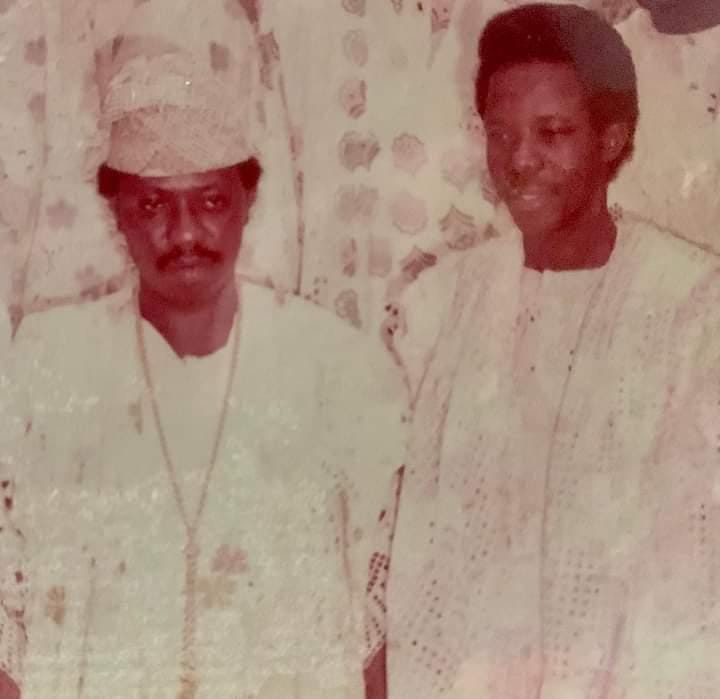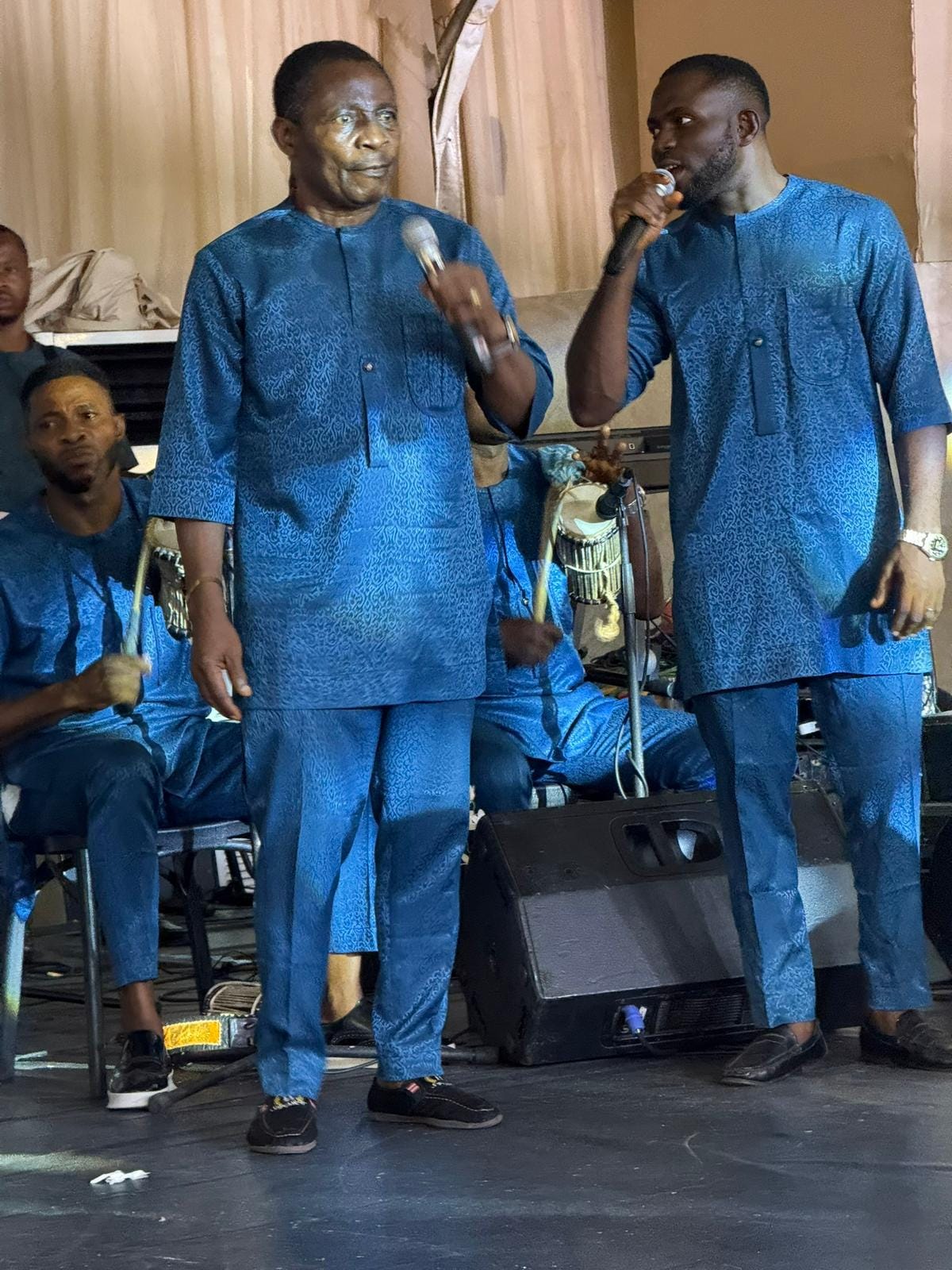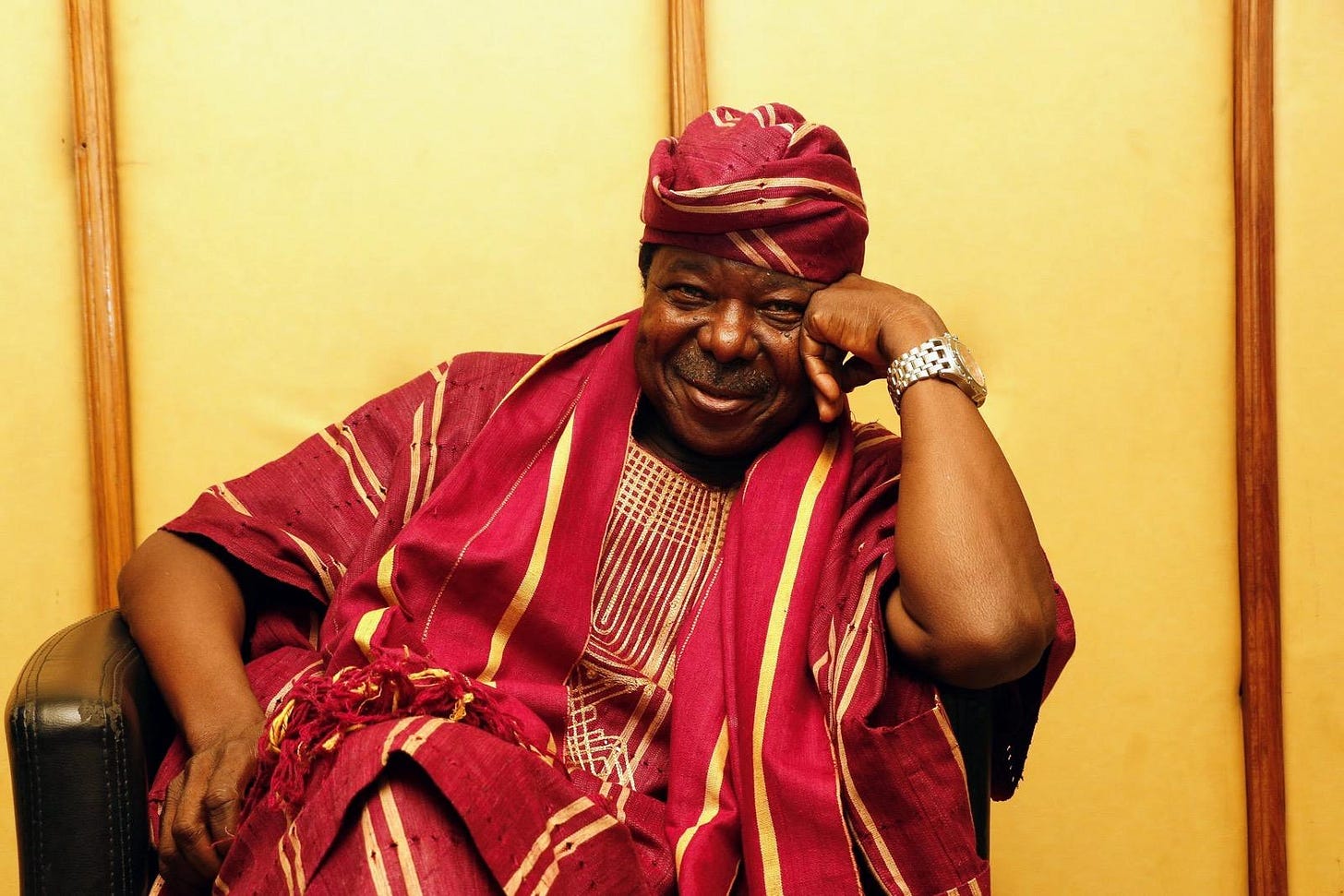59. Will the Real Juju OGs Please Sit Down?
Watching King Sunny Ade and the new New African Beats in 2025
Before Juju music became global in the early 1980s, becoming an interest of eccentric and exotic foreign music collectors and a source of forex for its campaigners, it was music performed exclusively at social gatherings among the Yoruba.
In today’s Southwest Nigeria, Juju stays true to this purpose. Social gatherings among the Yoruba, now called Owambe, have evolved. They have become more sophisticated, more consumerist, more materialistic. Juju bands score the hysteria of these Yoruba parties, a mishmash of actions initiated for social grace. They include performative greetings, passive-aggressive mannerisms, risus sardonicus smiles, the right amount of screen time in the company of others, good table manners, being civil to guests, hosts and waiters, prompt recognition of distant relatives and executing appropriate greetings that match their expectations.
Femi Owomoyela, Sunny Ade, Niyi Falaiye. Circa 80s.
We all have that grumpy aunt bedecked to the hilt in inferior metal and make-up, serially accusing you of not acknowledging her (even if you have a refractive error and elected not to wear your corrective glasses), not greeting her in Yoruba, not greeting her properly, etc. All of these inflammatory accusations happen over the fast-paced percussion of Tungba—and sometimes you do not know which sours your mood the most: the disruptive percussive up-tempo of the Juju music or the uncharitable comments of your grumpy aunt.
But the Yoruba party is about being socially graceful. Your aunt gets warm, apologetic hugs. You lick her with kisses, endure her sweaty torso, and avoid getting some of her make-up on your white blouse. She bares her teeth in warm and reconciliatory smiles. Equilibrium is restored; social grace is intact, but the onomatopoeic Tungba persists.
Guitars used to be Juju’s superpower. King Sunny Ade introduced tenor guitarist Bob Ohiri, lured from Fela Ransome-Kuti’s band into his band in the 70s. Ohiri complemented the army of guitarists, including Bob Aladeniyi, Sarafa Bello and Sunny Ade, and assaulted a primarily percussive genre with riffs of rhythm. On the standout juju track, E Kilo F’Omode, the highlight was the buoyant guitarwork of these gentlemen.
King Sunny Ade and the African Beats Band. Circa 2007
By the late 70s, the wail of the Hawaiian guitar had taken that tapestry up a notch. The small matter is who first introduced the steel pedal to Juju music. It is the recollection of members of Dele Ojo’s His Star Brothers band that it was Highlife/Juju crossover star Dele Ojo who introduced this sound in the early 70s by improvising on a regular guitar, playing it supine with hard metal as a plectrum. But Sunny Ade’s African Beats popularised this sound, enlisted the actual steel pedal guitar into their ensemble, and elevated it to become a Juju staple and standout musical instrument on the 80s record Searching for My Love.
I watched King Sunny Ade and His African Beats perform recently. The band had two guitarists, one rhythm guitarist and a steel pedal guitarist. Although the music was still mid to low tempo, it was unforgivably percussive. The sound’s pacemaker was the Sakara drummer, and the base percussion was reminiscent of Sikiru Ayinde Barrister’s late 80s Fuji. The lyrics were unmistakably Sunny’s. He was repetitive. His selection of tunes was geared towards singing the praises of his patrons. It was praise-singing alright, but it hardly held the depth of King Sunny Ade’s massive discography.
A rare picture of Sikiru Ayinde Barrister and King Sunny Ade
Soon enough, the King himself elected to sit mid-way into his performance. At 78, a lifetime of playing music catches up with you. The matter of losing his slightly nasal voice happened decades ago. Perhaps it may have influenced Sunny Ade’s openness to musical innovation. The lore was that Sunny Ade’s lyrical forte was making praise songs, but today, he circled only six of his popular tunes.
As the party dwindled and revellers left the dance floor, the band settled into playing some of their older Juju standards. When Sunny strayed into Tunde Nightingale’s work, there were hardly any guitar flourishes reminiscent of Congolese Rhumba, which was characteristic of Nightingale’s Owambe style of Juju. Soon enough, Sunny launched into songs on Side B of his best-selling LP, Sweet Banana. The rendition was lacklustre. It seemed unrehearsed and underwhelming compared to the album version. The band members struggled with their lines, except Niyi Falaiye, the longest-serving member of the African Beats band.
Niyi Falaiye, Bass vocalist, African Beats. 2025. Photo credits: author
Trust the good-natured Sunny to smile through it all. He has been the recurring decimal in all the years of making music with his bands, the Green Spots, the first African Beats, the Golden Mercury of Africa, and the new African Beats. This unchanging change agent has outlived his band members. His memory of his songs is remarkable. He waits for the soulful solos from his two guitarists. They falter. When they find their rhythm and plectrum, they stutter.
Who is to blame?
Juju music has evolved from the genre of warm guitar patchwork, Congolese rhumba guitar flourishes and soulful guitar solos to that of relentless percussion. Some may blame Fuji for its contagious percussions. Others may point to the successful late 80s class of Juju musicians, including Sir Shina Peters, Dayo Kujore, Lai Addis and Dele Taiwo and their reign into the early 90s, which led straight to the roaring success of Yinka Aiyefele. What is known for sure is that the guitar is less and less a pivotal tool in Juju music. The animal skin stretched over the wooden frame has won the fight as the performance mode of Juju has returned from standing back to sitting. It is some twisted poetic justice that King Sunny Ade, who changed Juju from the sitting mode and hung the guitar around his standing frame, now leans on a speaker midway into his performance.
King Sunny Ade, Ondo, Circa 2017. Photo credits - Hamed Adedeji


